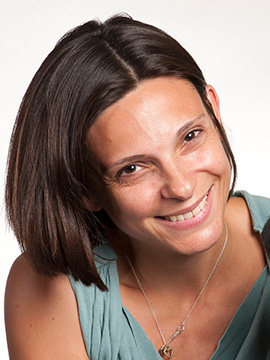New Study Reveals 'challenge focused' veterinary graduates will experience higher job satisfaction
A new study published in Veterinary Record by academics at the Royal Veterinary College (RVC) has revealed that new veterinary graduates typically adopt one of two professional identities; one of which is associated with job dissatisfaction while the other is more likely to result in them enjoying their career as a vet more.

The professional identity type that typically leads to unhappiness at work is one where the vets placed greatest value on patient diagnosis and the academic side of treatment. However, although there are opportunities for this, they are rare in general practice, where a vet’s typical work environment more frequently involves seeing lots of clients who: aren’t interested in a diagnostic work-up for unnoticed issues in their pets; who can’t afford further treatment; have pets with conditions that don’t require treatment; and themselves need emotional support. Vets who therefore exclusively value patient diagnosis from an academic viewpoint foremost are more likely to feel career dissatisfaction.
Meanwhile, the other professional identity type is one where their sense of achievement is linked to overcoming the full range of professional challenges thrown up by the work environment in which vets typically operate as well as their technical competence at their job. These vets are therefore more suited to work in all types of practice.
This research is important because it is well known that poor mental health and career dissatisfaction are significant issues for the veterinary profession. The findings from this ground-breaking study, Identity, Environment and Mental Wellbeing in the Veterinary Profession, have important implications for veterinary, and other clinical degree programmes. They have already influenced the structure of the curriculum at the RVC to ensure students are well prepared for the veterinary workplace and can make an informed choice about where they choose to work.
Dr Liz Armitage Chan, senior lecturer in veterinary education and co-author of the study with Professor Stephen May, said: “The negative impact on wellbeing of an identity emphasising diagnosis and treatment was a surprising outcome, but it is easy to see how this identity develops. So much of veterinary education is focused on this area and it has always been the focus of students’ exams: if a student is ambitious and wants to achieve top grades and high-level faculty recommendations, they will inevitably prioritise their attention in this way.
“Now we recognise the detrimental effect this can have on our graduates’ wellbeing, we have implemented changes to our curriculum and exams, so students are encouraged to think more holistically about the veterinary role and identify the different ways career satisfaction can be achieved. It is important to recognise that all the graduates experienced stress as they encountered complex contextual challenges, but for those who saw these challenges as part of their identity, this stress turned into a sense of satisfaction at a challenge overcome, rather than being ongoing and debilitating.”
The article can be accessed here: http://researchonline.rvc.ac.uk/11521/
Notes to Editors
For more information please contact: Alex Cassells or Ploy Radford Press Line: 0800 368 9520
About the Royal Veterinary College
- The Royal Veterinary College (RVC) is the UK's largest and longest established independent veterinary school and is a constituent College of the University of London.
- The RVC offers undergraduate, postgraduate and CPD programmes in veterinary medicine, veterinary nursing and biological sciences.
- It is currently the only veterinary school in the world to hold full accreditation from AVMA, EAEVE, RCVS and AVBC. In 2017, the RVC received a Gold award from the Teaching Excellence Framework (TEF) – the highest rating a university can receive.
- A research-led institution, in the most recent Research Excellence Framework (REF2014) the RVC maintained its position as the top HEFCE funded veterinary focused research institution.
- The RVC ranked as the top vet school in the Agriculture, Veterinary and Food Science unit of the most recent Research Assessment Exercise, with 55% of academics producing world-class and internationally excellent research.
- The RVC also provides animal owners and the veterinary profession with access to expert veterinary care and advice through its teaching hospitals; the Beaumont Sainsbury Animal Hospital in central London, the Queen Mother Hospital for Animals (Europe's largest small animal referral centre), the Equine Referral Hospital, and the Farm Animal Clinical Centre located at the Hertfordshire campus.

